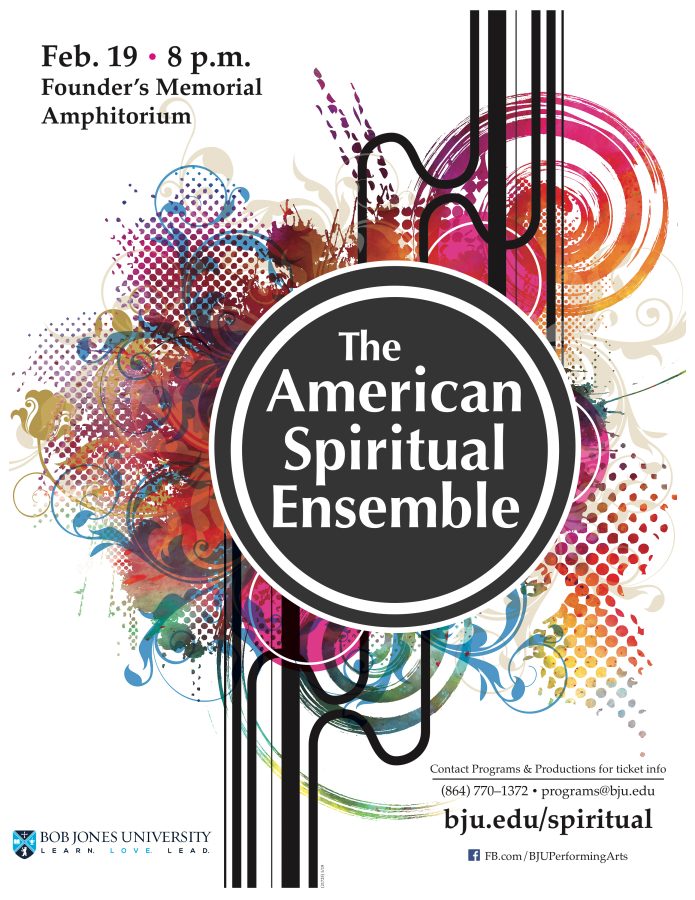An important part of black history is the spiritual songs that slaves sang, especially in Southern states.
Bob Jones University will celebrate this history at its Concert, Opera and Drama Series on Feb. 19 with the American Spiritual Ensemble.
Dr. Fred Coleman, a professor in the Division of Music, said the upcoming Artist Series will give BJU students exposure to a different culture and different way of worship. “For a long time, our country was so isolated in ethnicities,” he said. “It’s becoming important to acknowledge literally spiritual brothers and sisters who choose to express [their faith] in a different way than what we’re used to.”
He said this exposure to different cultures helps students see people unlike themselves as image-bearers of God.
“It’s important for us, considering our subculture as gospel-believing conservatives, to recognize that there are other people groups that sing differently the same truths,” said Coleman.
“[This artist series is] beneficial beyond even spiritual things for just recognizing the various cultures that make up America’s melting pot,” Coleman said.
Coleman said that while there is an element of enjoyment to every artist series, they also provide an opportunity to learn how to share the Gospel more effectively within other cultures. “They are about broadening your exposure,” he said. “That was [BJU’s] founder’s vision.”
The American Spiritual Ensemble is one such group formed in 1995 by Dr. Everett McCorvey, the music director of the spiritual ensemble. McCorvey and the ensemble carries the African American spiritual to audiences around the world.
The group is composed of world-renowned soloists who sing American spirituals and Broadway numbers as an ensemble. The mission of the American Spiritual Ensemble is to ensure that these spirituals aren’t lost to history.
The ensemble performed at the University in 2012 with the BJU Chorale. African American spirituals often reflect the hardships slaves faced and the hope they had of one day gaining their freedom.
Coleman said slaves found that the suffering in their own lives often paralleled the suffering of Bible characters. Many spirituals especially expressed their identification with the sufferings of Jesus.
Colemans said slaves seeking freedom sometimes used spirituals to communicate with each other on the Underground Railroad.
Harriet Tubman sang “Go Down Moses” to tell slaves she was in the area to help them escape to freedom. Coleman said the American spiritual style originated at camp meetings, using a call and response method.
A leader sang a simple phrase, and the congregation either repeated the phrase or gave a simple response. Coleman said spirituals reflected the slaves’ African roots through their rhythms and soulful melodies.
After slavery was abolished in 1865 with the 13th Amendment to the United States Constitution, spirituals gained popularity across the country and around the world.
Coleman said a group of former slaves from Fisk University formed the Jubilee Singers in the 1870s, traveling across America and Europe singing spirituals. Other groups like this began to form, and the genre grew in popularity.
























































